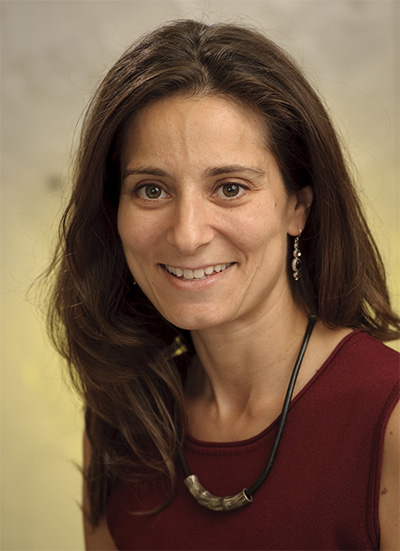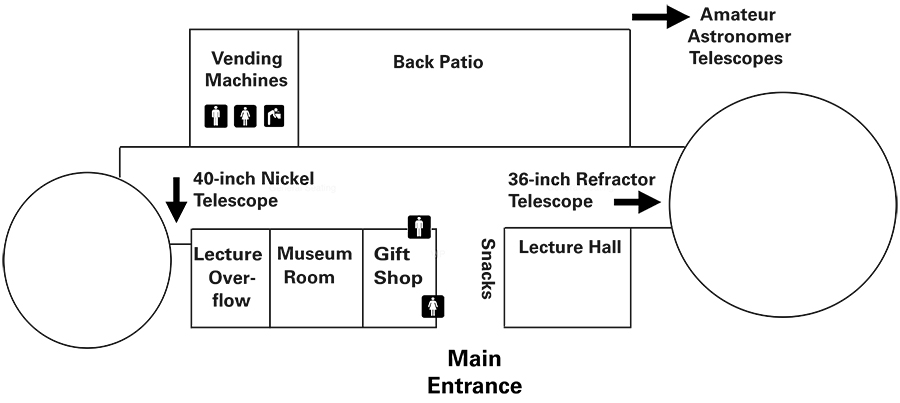
July 20, 2018
8:30 p.m.
Dr. Natalie Batalha, NASA Ames Research Center

Dr. Natalie Batalha is an astrophysicist at NASA Ames Research Center and the Mission Scientist for NASA's Kepler Mission. She holds a Bachelor's degree in physics from the University of California (UC), Berkeley, and a Doctoral degree in astrophysics from UC Santa Cruz.
Dr. Batalha started her career as a stellar spectroscopist studying young, sun-like stars. After a post-doctoral fellowship in Rio de Janeiro, Brazil, she returned to California. Inspired by the growing number of exoplanet discoveries, she joined the team led by William Borucki at NASA's Ames Research Center working on transit photometry -- an emerging technology for finding exoplanets. Dr. Batalha has been involved with the Kepler Mission since the proposal stage and has contributed to many different aspects of the science, from studying the stars themselves to detecting and understanding the planets they harbor. She led the analysis that yielded the discovery in 2011 of Kepler-10b — the mission's first confirmation of a rocky planet outside our solar system.
Today, she leads the effort to understand planet populations in the galaxy based on Kepler discoveries. She served ten years as professor of physics and astronomy in the classrooms of San Jose State University before joining the Astrophysics Branch of the Space Sciences Division of NASA Ames Research Center. In 2011, Dr. Batalha was awarded a NASA Public Service Medal for her vision in communicating Kepler science to the public and for outstanding leadership in coordinating the Kepler Science Team. In 2015, she joined the leadership team of a new NASA initiative dedicated to the search for evidence of life beyond the Solar System. NASA's Nexus for Exoplanet System Science (NExSS) brings teams from multiple disciplines together to understand the diversity of worlds. Kepler has demonstrated that earth-size planets abound in the galaxy. NExSS will lead NASA's efforts to understand which are most likely to harbor life. Dr. Batalha has been named one of the most influential people on earth by TIME Magazine (Time 100) in 2017.
Program Information
| 7:30 p.m. | Doors Open | Brief Telescope Visits |
| 8:30 p.m. | Science Talk, Lecture Hall | History Talk, Lecture Hall |
| 9:30 p.m. | Science Talk (repeated), Lecture Hall | Telescope Viewings |
| 10:30 p.m. | History Talk (repeated), Great Refractor | Telescope Viewings |
| 1:00 a.m. | Doors Close |
Ticket Information
General admission: $ 25.00 per person (ages 8 and older).
Tickets are non-refundable. Limit of four tickets per customer. Please be advised that unpredictable weather patterns may restrict telescope viewings, though lectures and other activities will still take place. Due to safety regulations and the nature of the event, children under age 8 are not allowed at this event, and it may be unsuitable for children under the age of 12 due to late hours.
Join Friends of Lick Observatory (FoLO) and Get Tickets Early
If you'd like to purchase tickets as early as noon on April 11th, 2018, join our Friends of Lick Observatory (FoLO) program by April 1st, 2018. As a thank you for supporting the observatory, you'll get special access to purchase tickets before they go on sale for the general public on April 18th at noon at www.ucsctickets.com
Driving to Lick Observatory
Please allow a one-hour drive from San Jose. The rood is good, but windy. The event typically lasts between 4 and 6 hours; prepare to drive home late in the evening. There are no automative services or gas stations for 20 miles, so please plan ahead. See more information on driving directions and parking here.
Recommended Attire
Casual, comfortable clothing and walking shoes. A sweater or light coat is recommended.
Safety
Please be careful when walking around in the dark outside; bringing a flashlight is recommended. Children under age 8 are not allowed at this event, and it may be unsuitable for children under the age of 12 due to late hours.
Telescopes
The large telescopes will be available for viewing as soon as the sky is dark. Telescopes will remain open until every guest has had an opportunity to see through both the 36-inch Great Refractor and the 40-inch Nickel Telescope.
In order to view through the telescopes, guests will receive a numbered pass at the door. Guests with the lowest telescope numbers are admitted to the telescopes first - so we recommend getting to the observatory early! Please note: Due to historic construction of the telescope domes, the 36-inch Refractor and the 40-inch Nickel Telescope are not wheelchair accessible at this time.
Volunteer amateur astronomers also set up ground telescopes in the back parking so guests can view additional cosmic objects.
Gift Shop
Lick Observatory souvenirs and astronomy merchandise will be available for purchase between 7:30 to 11:00 p.m. You can also visit our Gift Shop online 24/7.
Refreshments
Snacks and beverages will be available near the Nickel Telescope. Vending machines and fountain water are also available.
Assistance
We strive to make your visit as complete and meaningful as possible. Please let us know if you will need special assistance (for example, if you will have difficulty climbing stairs), so we can make the necessary arrangements.

Share Your Experience
If you attend an event make sure to tag us on Facebook, Instagram, Twitter!
Leave a review on Yelp here.
